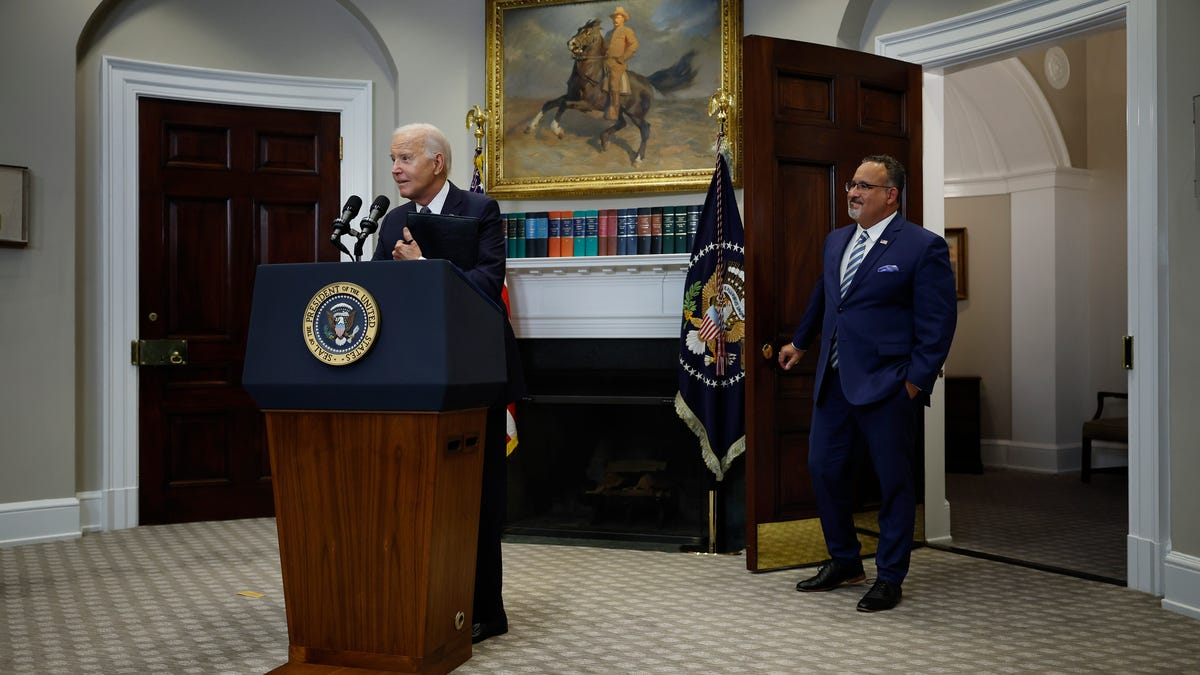A federal court on Monday blocked new Biden administration rules aimed at forgiving the debt of student borrowers who attended colleges that misled them or closed suddenly.
The move by the U.S. Court of Appeals for the 5th Circuit, by a panel comprised of Republican presidential appointees, was in response to a request from Career Colleges and Schools of Texas for a nationwide injunction on the new version of so-called borrower defense rules. The Biden administration’s version of the rules ease and clarify the process for securing that relief, including by allowing borrowers to submit claims if they believe they were misled by their institution.
CCST represents private career-oriented or trade schools in the Lone Star state, many of them for-profit colleges. Individuals who attend for-profit schools are disproportionately likely to take and default on student loan debt, in large part because they promise lucrative outcomes but have a track record of seldom producing those results. Federal policies have been developed over the years in an effort to relieve such borrowers of that debt.
The U.S. Education Department under President Joe Biden has worked to add to that pile of policies, including with its own borrower defense to repayment rule. Through borrower defense to repayment – or borrower defense for short – students who have been defrauded by their schools have their loans discharged.
When CCST filed its lawsuit earlier this year on behalf of more than 70 Texas institutions, it said the Education Department’s rule was created “with a thumb on the scale to maximize the number of approved claims and, ultimately, further the administration’s loan forgiveness agenda.”
Federal law has long allowed the discharge of loans for borrowers who have been misled or defrauded by their colleges. But getting loans canceled has been arduous and in many cases involved lawsuits against the federal government.
Biden has been applying this authority incrementally. In a settlement for a case that traces back to the Trump presidency known as Sweet v. Cardona, Biden agreed to forgive $6 billion in debt relief for nearly 300,000 borrowers, for example. That relief isn’t affected by Monday’s injunction. Still, the group behind that push for relief was frustrated by the block of Biden-era rules.“It is necessary to protect students from being scammed and it ensures that predatory actions come to light and are stopped before they go on to harm even more students,” said Eileen Connor, president and director of the Project on Predatory Student Lending, in a statement. "These organized, well-funded political attempts to weaponize the court system against the legal rights of borrowers underscore how stacked the system is against our clients.Also last month, the administration announced forgiveness for another 7,400 defrauded student borrowers in Colorado.
All in all, the administration has forgiven roughly $14.7 billion in loans for defrauded student borrowers. Nearly half a million borrowers had submitted borrower defense claims and had pending applications as of January 2023.
The ruling Monday delays the start of Biden’s regulations, which also include automatic relief for borrowers whose institutions were closed.
Advocates in favor of debt relief lamented the decision and stressed the importance of strong borrower defense policies. “We cannot afford a green light for dishonest schools to continue harming students,” said Aaron Ament, president of Student Defense, in a statement. "Defrauded borrowers are legally entitled to relief and their institutions should be held accountable. Until these protections are restored, countless students are at risk of being taken advantage of by higher ed profiteers who are exploiting students with little accountability.”



I think we can just safely say our judicial system has lost all credibility of being just.
American law enforcement and judicial system run purely on threat of state sanctioned violence at this point, and that’s really disheartening.
Always have friend.